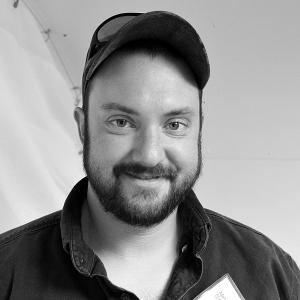Patrick Shepard

Voices of the Maine Fishermen's Forum 2018
Voices of the Maine Fishermen’s Forum 2018 is a project of Maine Sea Grant, The First Coast, College of the Atlantic, and the Island Institute, with support from the Maine Fishermen’s Forum Board of Directors.
Kaitlyn Clark
Patrick Shepard works for the Maine Center for Coastal Fisheries and was born in Stonington, ME. He talks about his experiences growing up in a fishing family and lobstering with his brother from a very young age. He also speaks about the changes he sees in his hometown and what the future of fishing in Maine might hold, particularly in finding ways to make more money from a smaller amount of high quality product. In his current position, he works with fishermen to improve their markets and opportunities, and he ends by sharing a success story in the limited groundfish fishery.
Voices of the Maine Fishermen’s Forum 2018 is a project of Maine Sea Grant, The First Coast, College of the Atlantic, and the Island Institute, with support from the Maine Fishermen’s Forum Board of Directors.
Please Note: The oral histories in this collection are protected by copyright and have been created for educational, research and personal use as described by the Fair Use Doctrine in the U.S. Copyright law. Please reach out Voices@noaa.gov to let us know how these interviews are being used in your research, project, exhibit, etc. The Voices staff can help provide other useful resources related to your inquiry.
The NOAA mission is to understand and predict changes in climate, weather, oceans, and coasts, to share that knowledge and information with others, and to conserve and manage coastal and marine ecosystems and resources. The Voices Oral History Archives offers public access to a wide range of accounts, including historical materials that are products of their particular times, and may contain offensive language or negative stereotypes.
Voices Oral History Archives does not verify the accuracy of materials submitted to us. The opinions expressed in the interviews are those of the interviewee only. The interviews here have been made available to the public only after the interviewer has confirmed that they have obtained consent.
